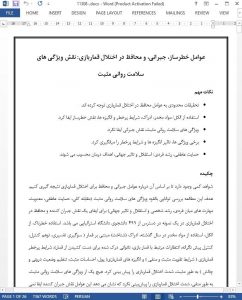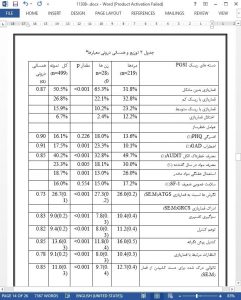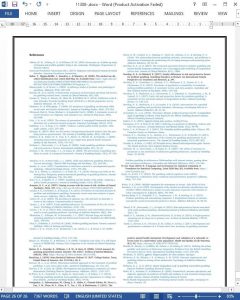Abstract
There is a limited evidence base from which to draw conclusions about compensatory and protective factors for problem gambling. The aim of this study was to explore the potential for positive mental health characteristics (general coping, emotional support, spirituality, interpersonal skills, personal growth and autonomy, and global affect) to play a compensatory role and protective role in problem gambling in a convenience sample of 499 Australian university students. Hazardous alcohol use, past-year substance use, gambling-related cognitions (interpretive bias, illusion of control, predictive control, gambling-related expectancies, and perceived inability to stop gambling), gambling high-risk situations (negative and positive reinforcement situations), and gambling motives (money, positive feelings, regulate internal state, and challenge) positively predicted problem gambling severity. None of the positive mental health characteristics negatively predicted problem gambling severity, suggesting that these factors did not play a compensatory role. However, emotional support, personal growth and autonomy, and global affect buffered the influence of gambling motives and high-risk situations, suggesting that these factors played a protective role. In contrast, spirituality displayed a direct positive predictive relationship with problem gambling severity, suggesting that it served to act as a risk factor in this sample. The identification of these modifiable risk and protective factors has implications for the development of effective prevention and intervention initiatives. Further longitudinal research employing population-representative samples is required to replicate these results and investigate relationship-, community-, and societal-level risk, compensatory and protective factors associated with the development of problem gambling.
4.5. Conclusion
These limitations notwithstanding, this study provides important new insights regarding the role of protective factors that interact with established risk factors to mitigate their effects. Specifically, it highlights the potential for emotional support, personal growth and autonomy, and global affect to buffer the influence of gambling motives and high-risk situations. It also adds to the growing body of evidence that substance use, gambling cognitions, high-risk situations, and gambling motives play a risk role in the development of problem gambling. The identification of these modifiable risk and protective factors has implications for the development of effective prevention and intervention initiatives. Further longitudinal research employing population-representative samples is required to replicate these results and investigate relationship-, community-, and societal-level risk, compensatory, and protective factors associated with the development of problem gambling.










